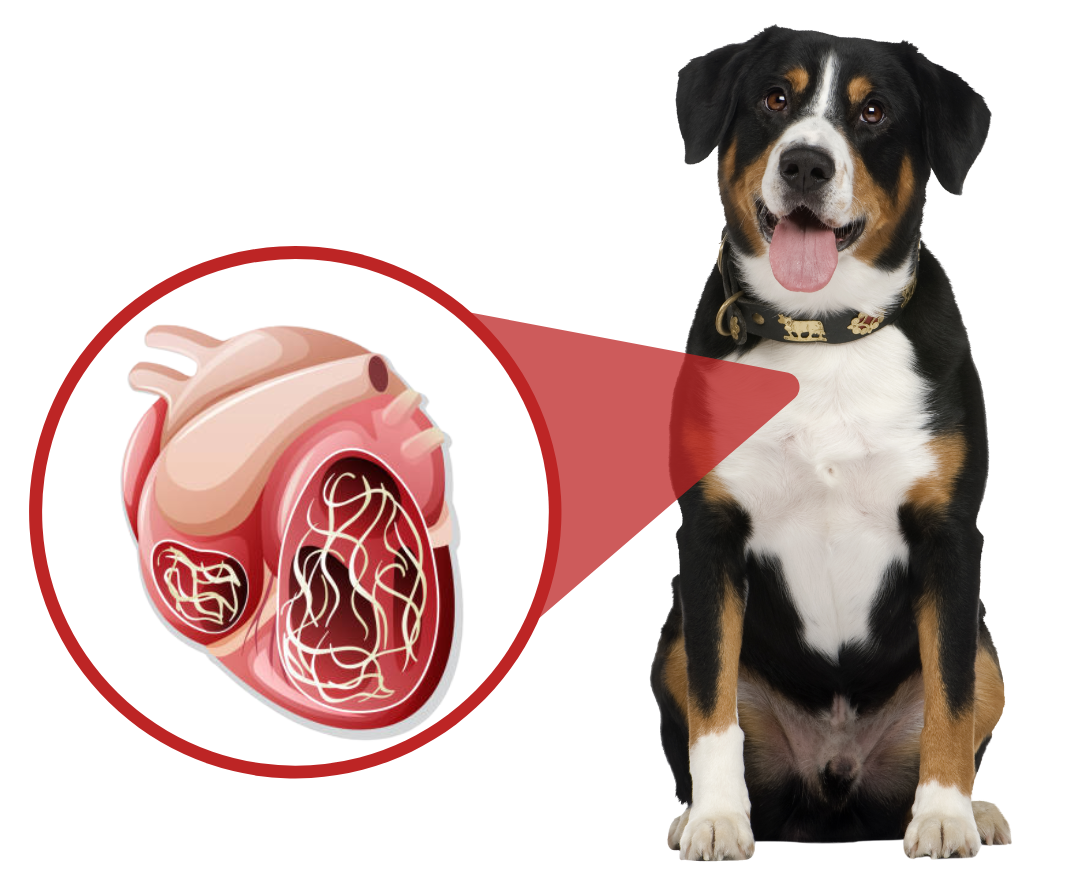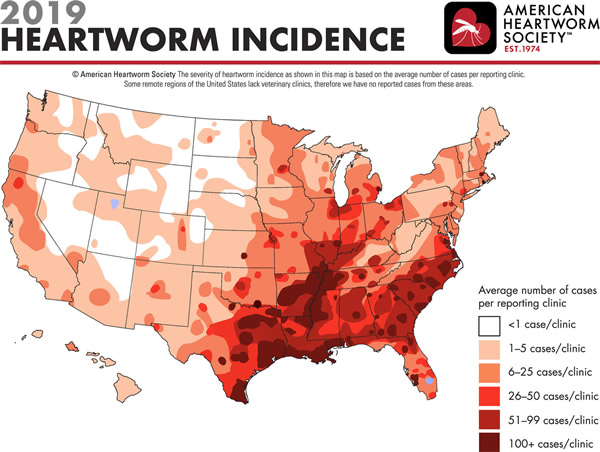Heartworm Awareness Month
This month is Heartworm Awareness Month at Charleston Animal Society!
Heartworm disease is a potentially fatal disease in dogs spread by mosquitos year-round. It is caused by heartworms that live in the heart, lungs and blood vessels of affected animals. The infestation causes severe lung disease, heart failure and damage to other organs in the body.
What is heartworm disease?
Dogs are the natural host for heartworms, so they are at an especially high risk for heartworm disease. Heartworm disease can cause severe and lasting damage to canines, even long after the parasites are gone. Treatment for heartworm disease is both expensive and complex, so prevention is crucial. Once a dog has a negative heartworm test, they should be promptly started on a heartworm preventative.
How do I prevent heartworm disease?
We highly recommend HEARTGARD® Plus for dogs. These tasty, meat-flavored chews can be given to your dog every 30 days. As a plus, HEARTGARD® Plus also treats and controls three species of hookworms and two species of roundworms. Any dog that has been adopted from Charleston Animal Society or heartworm tested in our clinic in the last 12 months can order HEARTGARD® Plus from our online pharmacy.
How is heartworm disease transmitted?
Heartworms are spread largely by mosquitos. Just one bite from a mosquito can transmit this deadly disease. Heartworm disease causes lasting damage to the heart, lungs and arteries, and it is especially prevalent in dogs. Adult female heartworms living in an infected animal produce microscopic baby worms that circulate through the bloodstream. Mosquitos can pick up these baby worms when they bite an infected animal and then transmit the larvae by biting other animals.
After larvae enter an animal it takes about 6 months for heartworms to mature and produce more larvae. Once they have matured, they can live 5 to 7 years in a dog. Areas that have high mosquito populations or year-round mosquito presence tend to have higher incidence of heartworm disease.
How do I know if my dog has heartworm disease?
Detecting heartworm disease is very challenging in the early stages of heartworm infection. Active dogs or dogs with underlying health complications tend to show symptoms sooner than other dogs. Symptoms can also mirror symptoms of several other health conditions.
In dogs, symptoms can include fatigue, decreased appetite, a mild cough and weight loss. As heartworm disease progresses, symptoms can include heart failure or a swollen abdomen due to excess fluid being stored in the midsection of the body. In extreme cases, dogs can also have a blood flow blockage due to worms in the bloodstream, causing labored breathing, light colored gums and dark brown or red urine.
The only way to truly diagnose heartworm disease is through a heartworm test administered by a veterinarian. Heartworm tests require a small blood sample and they detect heartworm proteins in the blood. The American Heartworm Society recommends annual heartworm testing for dogs.
Puppies under the age of 6 months can be started on heartworm prevention without a heartworm test. Dogs over 6 months of age should be tested before they start heartworm prevention.
What happens if my dog tests positive for heartworm disease?
No one wants to find out that their dog has heartworm disease. Treatment is expensive, $1,200 to $1,800, and it requires a lot of patience and several visits to the veterinarian. Additionally, some damage from heartworm disease can be irreversible.
When a dog tests positive for heartworm disease, their treatment must be administered by a veterinarian. Typically, an injectable drug, called melarsomine, is used to kill adult heartworms in the heart and arteries. This injection must be administered multiple times over about a month. Additionally, dogs will be treated with a medication that kills the heartworm larvae.
In between treatments, especially the 30 days after the first injection, dogs must remain quiet and calm. Any exercise can be extremely risky to dogs as the medicine kills the adult heartworms. In addition to the main heartworm treatments, dogs may require other antibiotics, pain relievers or diet changes to help them with their residual symptoms.
Heartworm prevention is crucial, especially in the southeast where many veterinary clinics saw over 100 cases of heartworm in dogs in 2019, according to a study from American Heartworm Society. Annual prevention costs $70 to $200 annually, but heartworm treatment costs around $1,200 to $1,800.
Their hearts are in our hands.
Our canine companions cannot be safe from heartworm without heartworm prevention and treatment. Each year, several heartworm positive dogs arrive at Charleston Animal Society. We cover the cost of heartworm treatment for dogs adopted from our organization. This gives every adopted dog their best chance at a happy, healthy life and eliminates the financial burden of treatment for adopters.
YOU can help give heartworm positive dogs a second chance at life by donating today! Their hearts are in our hands, and together, we can keep them safe from heartworm disease.



